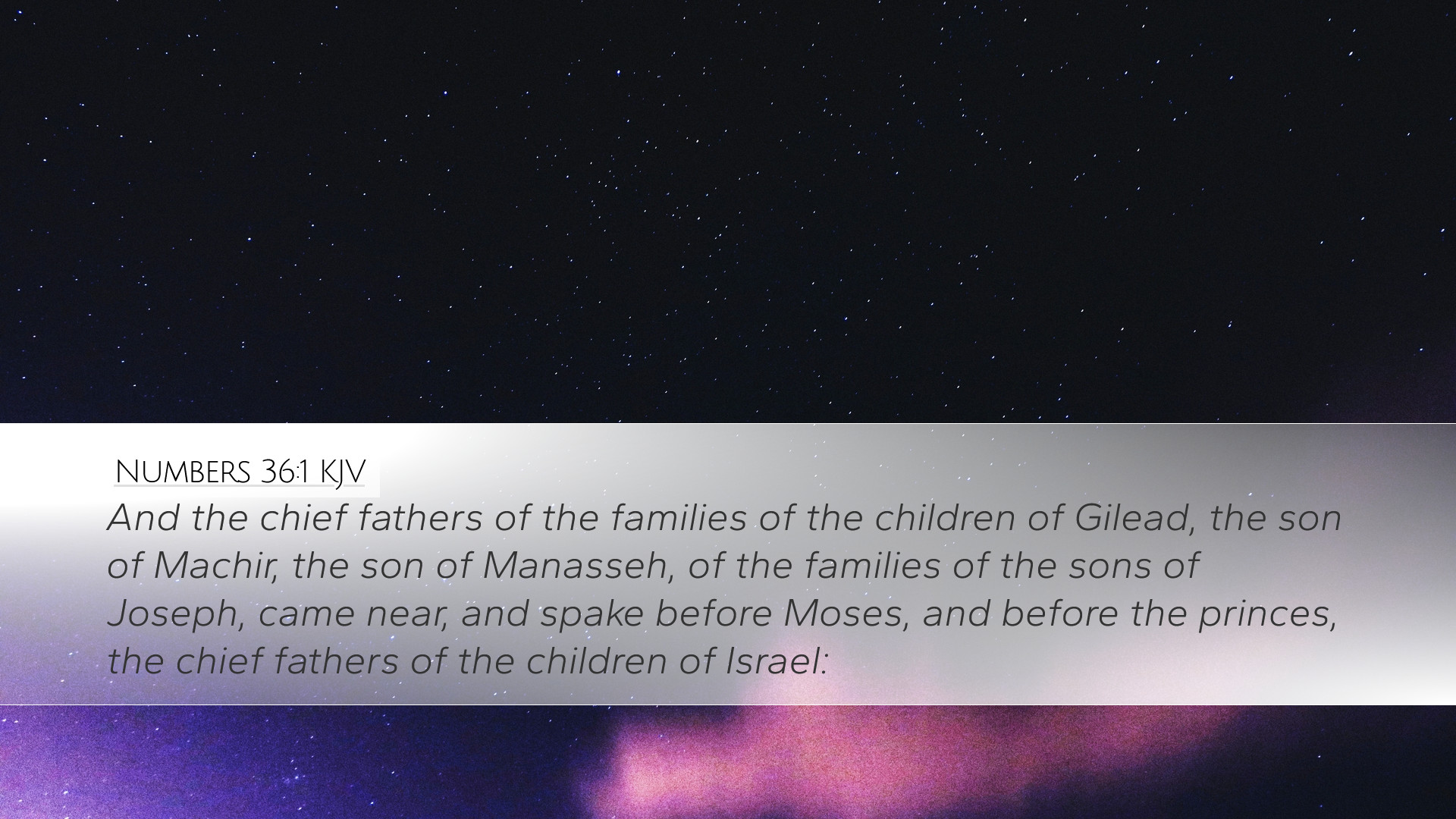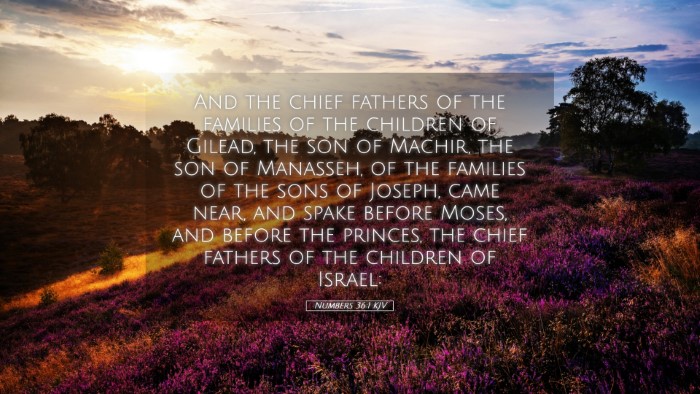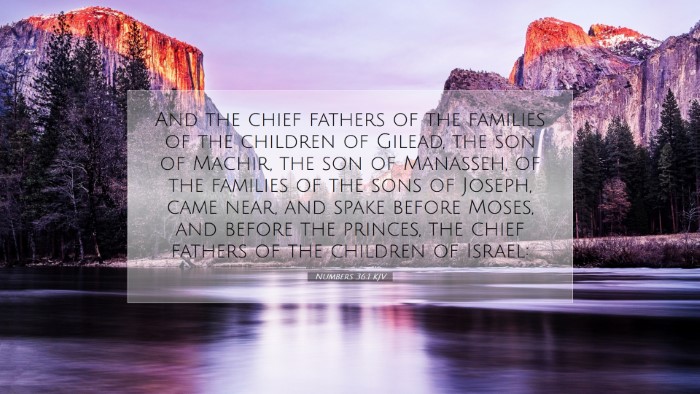Bible Commentary on Numbers 36:1
The verse Numbers 36:1 states: "And the chief fathers of the families of the children of Gilead, the son of Machir, the son of Manasseh, of the families of the sons of Joseph, came near and spake before Moses, and before the princes, the chief fathers of the children of Israel."
Contextual Overview
Numbers 36 is situated toward the end of the Book of Numbers, where various laws and regulations concerning land inheritance and familial responsibilities are being articulated. This specific verse sets the stage for a significant discussion regarding the daughters of Zelophehad, who had raised concerns about their inheritance rights under Mosaic Law.
Insights from Public Domain Commentaries
Matthew Henry's Commentary
Matthew Henry emphasizes the leadership role of the "chief fathers" or the heads of the families, highlighting their responsibility in representing their families before Moses. He notes that this was a critical moment of advocacy, as these leaders approached Moses with a concern that was deeply tied to the well-being of their families and their future.
Advocacy for Justice
This verse indicates a proactive step toward ensuring justice and equity in the distribution of land among the tribes of Israel. The appeal to Moses signifies a recognition of his authority and the grave responsibility of leadership in making decisions that affect the societal structure of Israel.
Albert Barnes' Commentary
Albert Barnes focuses particularly on the representation of the children of Gilead and their connection to the greater narrative of God’s promise to Israel. He remarks that this dialogue under Moses serves not only to clarify the inheritance laws but also reflects God's ongoing providence in guiding His people.
Cultural and Historical Significance
Barnes also highlights that these leaders weren't just coming on their own behalf but rather representing the larger community of the tribes of Manasseh. It speaks volumes about the cultural values of accountability and communal representation in Israelite society, where every voice counts in matters concerning land and legacy.
Adam Clarke's Commentary
Adam Clarke expands on the implications of this gathering. He identifies these chiefs as men of both influence and wisdom, chosen for their positions due to their understanding of both the Law and the needs of their people. Clarke remarks on the importance of approaching leadership with respect and clarity, as these leaders did in presenting their case to Moses.
The Nature of Leadership
Clarke also points to the characteristics of true leadership demonstrated in this account—an understanding of justice, the courage to seek clarification of rights, and the commitment to the welfare of one’s family and community. This serves as a model for contemporary leaders within faith communities.
Theological Implications
The gathering of these leaders reveals profound theological principles regarding community and responsibility. The act of coming before Moses represents a pursuit of divine justice, a reminder that in God’s kingdom, every individual's rights are to be respected, particularly those who may have been marginalized or overlooked.
Community and Individual Rights
This text highlights the importance of community awareness and advocacy. It provides a template for modern believers regarding how to approach issues of justice and inheritance within their own congregations, affirming that God values both community and individuals within it.
Practical Applications for Leaders and Scholars
-
Understanding Authority: Leaders must recognize and exercise their God-given authority wisely and justly, following the example set by Moses.
-
Advocacy: Just as the families approached Moses with their concerns, contemporary leaders are encouraged to advocate for those whose voices may be less heard.
-
Community Engagement: This passage emphasizes active participation within the community. Believers are called to engage in meaningful discussions about justice and righteousness in their contexts.
Conclusion
In summary, Numbers 36:1 serves as a pivotal moment that encapsulates themes of leadership, justice, and communal responsibility. Drawing insights from historical leaders such as Moses, the discussion surrounding inheritance conveys the timeless nature of God’s laws that prioritize equity and the welfare of the faithful. As pastors, students, theologians, and scholars delve deeper into these scriptures, they are reminded of the critical role that advocacy, understanding, and accountability play in the life of faith.


